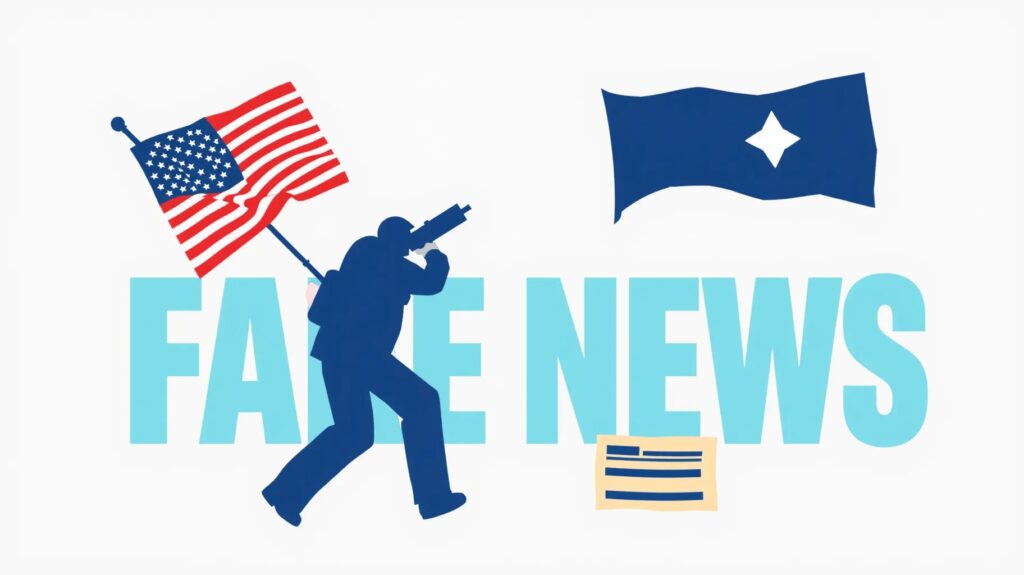
Fake news spreads like wildfire. Misinformation circulates through social media, blogs, and even mainstream outlets, making it harder for people to discern what’s true.
Here’s where AI-driven fact-checking steps in. But can OpenAI chatbots help combat fake news? Let’s dive into the role of AI in reshaping media fact-checking.
AI as a Reliable Fact-Checker: Can It Be Trusted?
The idea of using AI for fact-checking is fascinating. OpenAI chatbots, for example, can process vast amounts of data quickly. They can scan news articles, social media posts, and other content to identify potential inaccuracies. This capability helps combat the rise of fake news by flagging misleading or outright false information before it reaches a broader audience.
But can we fully trust AI to be accurate? Human biases can still affect algorithms, leading to errors. Nonetheless, when AI fact-checking tools are integrated with human oversight, they can serve as powerful allies in the fight against misinformation. The human-AI collaboration combines the speed of machines with the nuanced understanding of real-world events that people provide.
Real-Time Fact-Checking: An Essential Tool in Crisis Situations
One of the most significant advantages of using AI chatbots like OpenAI’s for fact-checking is real-time analysis. Whether during elections, a global health crisis, or breaking news events, timely fact-checking is crucial. AI can sift through massive volumes of information in seconds, catching misleading claims or debunking hoaxes faster than human teams ever could.
For example, during the COVID-19 pandemic, misinformation surged. AI-powered tools helped track and neutralize false claims about treatments, vaccines, and transmission methods. The capacity to work at lightning speed makes AI invaluable in crisis management and reporting accurate news when it’s needed the most.
Enhancing Journalism: How AI Supports Newsrooms
Today’s newsrooms face immense pressure. Reporters and editors must not only produce content rapidly but also verify facts under tight deadlines. AI can assist in this process by automating fact-checking tasks, allowing journalists to focus on reporting rather than combing through archives.
Imagine a journalist writing an article. They can input claims into an AI chatbot, which cross-references it with trusted sources or existing databases. This boosts accuracy while reducing the chances of erroneous claims slipping through. It’s no surprise that many major media outlets are turning to AI tools to complement their teams.

Combatting Misinformation on Social Media Platforms
Social media platforms are notorious breeding grounds for fake news. AI chatbots can significantly mitigate the spread of misinformation on these platforms. OpenAI’s language models, for example, can monitor posts in real time, scanning for keywords or patterns commonly associated with misleading content.
When the chatbot identifies suspicious information, it can flag it for review or send alerts to users, reducing the likelihood of it going viral. This early intervention can stop misinformation before it spirals out of control, protecting the integrity of public discourse. With billions of posts made daily, this kind of automated monitoring is a game changer.
Ethical Concerns: Balancing AI’s Power and Human Control
While AI offers numerous benefits in combating fake news, it also raises ethical questions. Who decides what is true or false? Can AI systems be truly impartial, or do they carry the biases of their developers? Additionally, some worry about over-reliance on AI, which could limit freedom of expression or suppress legitimate dissenting views.
The key lies in maintaining a balance between AI automation and human judgment. Fact-checking is a nuanced process, and while AI can identify patterns, human experts must still interpret the results to avoid unfair or incorrect conclusions. By ensuring AI supports—not replaces—human fact-checkers, media outlets can leverage technology responsibly.
AI’s Growing Influence in the Fight Against Fake News
AI has already shown it can transform how we tackle misinformation. OpenAI chatbots and similar technologies are gaining popularity for their speed, efficiency, and ability to analyze huge volumes of data. As the technology improves, so too will its potential to reshape the media landscape by helping to deliver more accurate, trustworthy content.
Automated Fact-Checking vs. Human Researchers: A Dynamic Duo?
AI fact-checking doesn’t aim to eliminate human involvement entirely. Rather, it enhances it. By automating repetitive tasks like data validation and source comparison, AI frees up human researchers to handle more complex elements. Together, humans and machines create a robust defense against misinformation, with AI handling bulk work and humans applying critical analysis.
A great example is the FactStream app, which uses machine learning to flag potentially false claims in political speeches and news reports. With a database of verified facts, the AI cross-references spoken or written content in real time. Journalists or analysts can then quickly assess flagged statements and investigate further.
AI-Generated News: Solving or Creating New Challenges?
While AI is valuable for fact-checking, the rise of AI-generated news content is a double-edged sword. On one hand, AI can generate stories faster than any journalist. On the other, the lack of human input in generating the news raises concerns. Automated systems might inadvertently spread misinformation or produce biased reports if not carefully monitored.
The ethical debate here hinges on maintaining transparency. News consumers should be aware when a piece of content is AI-generated. Moreover, human editors must oversee AI-written articles to ensure factual accuracy and fairness, preventing AI from inadvertently contributing to the very problem it seeks to solve.
The Future of AI in Newsrooms: What Lies Ahead?
Looking forward, AI is expected to play an even larger role in media, from helping journalists research stories to fact-checking and even news creation. As OpenAI chatbots become more sophisticated, they’ll likely take on more responsibilities within newsrooms, allowing for faster and more efficient news cycles.
This shift has enormous potential but requires ongoing collaboration between AI developers, journalists, and policy makers. Striking the right balance between automation and human oversight will ensure that AI contributes positively to media, enhancing the quality of information while preserving ethical standards.
How AI-Powered Chatbots Could Educate the Public
An often overlooked but essential role AI chatbots can play is educating the public. Instead of only flagging false information, AI tools could provide deeper insights into why something is misleading or false. This proactive approach not only halts the spread of fake news but also encourages readers to think critically.
Imagine an OpenAI chatbot that not only flags a false claim but also explains, in easy-to-understand language, the factual basis for its conclusion. This could empower users to become better informed and critical thinkers, making it harder for misinformation to thrive.
Conclusion: A Powerful Tool with Limitations
AI-driven chatbots like those from OpenAI have clear potential to change the game in media fact-checking. From real-time verification to combatting social media misinformation, AI is poised to reshape how news is produced and consumed. But as with any tool, it comes with limitations, ethical considerations, and the need for human oversight.
The next few years will be pivotal in determining how AI will be used in journalism. Will it create a new age of accountability, or will its own imperfections contribute to the problem? Only time will tell. But one thing is clear—AI’s role in fact-checking is only growing.
Resources
- Poynter Institute – International Fact-Checking Network (IFCN)
This is a well-known organization that promotes best practices in fact-checking and media literacy. Their articles and research on AI in fact-checking are incredibly insightful.
Poynter Institute – IFCN - Reuters Institute for the Study of Journalism
Reuters regularly publishes in-depth reports on how AI is transforming journalism, including its role in combating fake news.
Reuters Institute - MIT Technology Review
They offer cutting-edge articles on how AI is being applied in various industries, including media and newsrooms, with a focus on fact-checking and misinformation.
MIT Technology Review